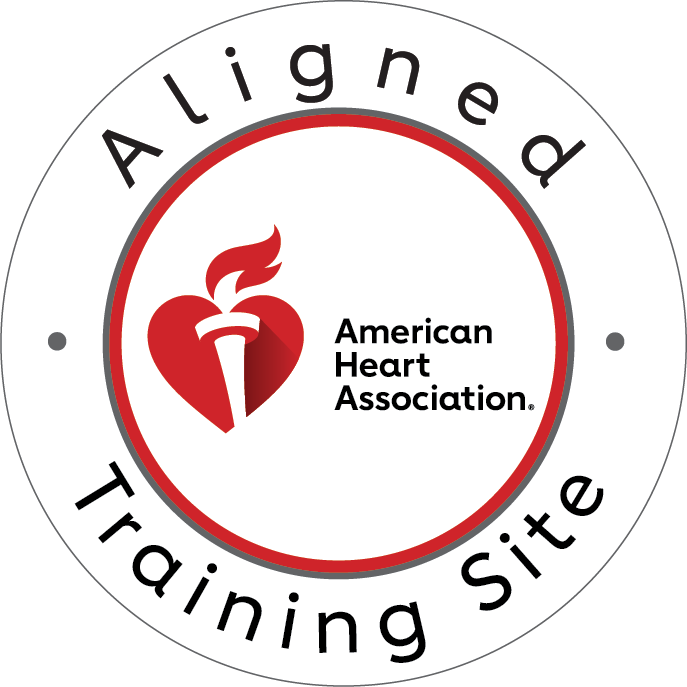In a city like St. Louis, where the health and safety of its residents is of utmost concern, the ability to provide prompt and effective cardiopulmonary resuscitation (CPR) can quite literally mean the difference between life and death. CPR is a critical emergency procedure that can restore breathing and circulation when someone’s heart has stopped beating. By performing CPR, bystanders have the power to intervene and potentially save a life before professional medical assistance arrives.
The importance of widespread CPR certification within the St. Louis community cannot be overstated. When a sudden cardiac emergency occurs, every second counts, and having a pool of CPR-trained citizens ready to respond can dramatically improve the chances of survival. By ensuring that more residents are equipped with the knowledge and skills to administer CPR, the city of St. Louis can bolster its preparedness and resilience in the face of such life-threatening situations.
The Need for CPR Preparedness in St. Louis
St. Louis faces a pressing need to improve its CPR preparedness. According to the latest data from the American Heart Association, the city experiences around 1,500 out-of-hospital cardiac arrests each year. Sadly, the survival rate for these incidents remains relatively low, with only about 10% of victims ultimately leaving the hospital alive. This underscores the critical importance of having a greater number of CPR-trained individuals ready to respond in these emergencies.
Without widespread CPR training and certification, the community faces significant risks. When a cardiac emergency occurs, the precious minutes before emergency responders arrive can mean the difference between life and death. If bystanders are not equipped with the skills to perform CPR, the likelihood of positive outcomes diminishes considerably. This not only puts individual lives at stake but also strains the city’s emergency services and healthcare system, as hospitals are forced to handle a higher volume of severe cases with poor prognoses.
To address this pressing need, St. Louis must take proactive steps to promote CPR certification and ensure that more residents are prepared to respond effectively in the event of a medical emergency. By doing so, the city can not only save lives but also build a more resilient and prepared community.
Promoting CPR Certification in St. Louis
Recognizing the critical need for improved CPR preparedness, local organizations and authorities in St. Louis have been spearheading initiatives to increase CPR training and certification within the community. These efforts aim to make CPR education more accessible and widespread, empowering residents to become active participants in the city’s emergency response system.
One key strategy has been the establishment of partnerships between various stakeholders, including local government agencies, healthcare providers, and community groups. These collaborations have enabled the creation of targeted CPR training programs that reach diverse segments of the population. For example, the St. Louis Fire Department has teamed up with local businesses to offer on-site CPR certification courses, allowing employees to become trained and certified during their workday. Similarly, schools across the city have integrated CPR training into their curriculum, ensuring that students gain these vital life-saving skills before they graduate.
In addition to these collaborative efforts, the city has also made strides in improving the availability and accessibility of CPR certification courses. Community centers, healthcare facilities, and other public venues now regularly host CPR training workshops and classes, making it easier for residents to find and attend these educational opportunities. Some organizations even offer free or low-cost CPR certification programs, removing financial barriers and enabling more people to become trained.
By making CPR education a priority and making it more accessible, St. Louis is taking crucial steps to empower its community and enhance its overall preparedness for medical emergencies. As more residents become CPR-certified, the city is poised to see a tangible impact on its ability to respond effectively to cardiac crises, ultimately saving more lives and building a more resilient community.
The Impact of CPR-Trained Citizens in St. Louis
As the city of St. Louis has made strides in promoting widespread CPR certification, the positive impact on the community has become increasingly evident. The presence of a growing number of CPR-trained individuals has proven to be a game-changer in the city’s ability to respond to and manage cardiac emergencies.
One of the most inspiring examples of this impact can be seen in the numerous instances of successful CPR interventions by bystanders. Across St. Louis, there are heartwarming stories of citizens who have stepped up, applied their CPR training, and ultimately saved the lives of neighbors, colleagues, and even strangers who experienced sudden cardiac arrest. These life-saving actions not only provide hope and inspiration to the community but also underscore the critical role that CPR-prepared individuals can play in shaping the city’s emergency response landscape.
Beyond the individual success stories, the widespread adoption of CPR certification has also yielded broader societal benefits for St. Louis. With more residents equipped to perform CPR, the strain on the city’s emergency services and healthcare system has started to ease. Paramedics and emergency responders can now often rely on bystander CPR to be initiated before their arrival, allowing them to focus on advanced medical interventions and transportation to hospitals. This, in turn, has led to a reduction in the number of cardiac arrest cases that result in poor outcomes or require prolonged, resource-intensive hospital stays.
The impact of a CPR-prepared St. Louis extends even further, fostering a heightened sense of community preparedness and resilience. When more residents possess the skills and confidence to respond effectively to medical emergencies, the entire city becomes better equipped to weather unexpected crises. This shared sense of responsibility and collective action strengthens the social fabric of St. Louis, empowering citizens to look out for one another and work together towards a safer, more resilient community.
Overcoming Barriers to CPR Certification
While the benefits of widespread CPR certification in St. Louis are clear, the city still faces challenges in ensuring that all community members have access to this vital training. Overcoming the barriers to CPR education and adoption is crucial to achieving the goal of a truly prepared and resilient St. Louis.
One of the primary barriers is the persistence of common misconceptions and fears surrounding CPR. Some residents may be hesitant to learn and perform CPR, concerned about potentially causing harm, or unsure of their abilities to respond effectively in an emergency. Addressing these concerns through targeted educational campaigns and hands-on training opportunities is crucial to dispelling these myths and empowering more individuals to become CPR-certified.
Another significant barrier is the accessibility and affordability of CPR certification courses. For some residents, the time commitment or financial cost associated with these programs may pose a significant obstacle. To address this, local organizations and authorities have worked to make CPR training more convenient and inclusive, offering courses at flexible schedules, diverse locations, and reduced or subsidized prices.
By proactively addressing these barriers, St. Louis can continue to make strides in ensuring that CPR certification is within reach for all community members, regardless of their background or socioeconomic status. This inclusive approach not only strengthens the overall preparedness of the city but also promotes equity and social cohesion, as everyone has the opportunity to gain the life-saving skills needed to respond to cardiac
The Way Forward: Ensuring a CPR-Prepared St. Louis
As St. Louis has demonstrated the profound impact of widespread CPR certification within the community, the city now faces the critical task of sustaining and expanding these efforts to ensure a truly CPR-prepared future. Building on the progress made thus far, the path forward requires a continued and coordinated commitment from local authorities, organizations, and the community at large.
Moving forward, the city must maintain its focus on promoting CPR certification through ongoing educational campaigns, partnerships, and the continued availability of training programs. Collaboration between various stakeholders, including healthcare providers, emergency services, businesses, and community groups, will be essential in reaching all segments of the population and ensuring that CPR education remains a top priority.
Moreover, St. Louis should explore innovative strategies to make CPR training even more accessible and attractive to residents. This could include the integration of CPR certification into school curriculums, the provision of incentives for businesses to offer on-site training, and the leveraging of technology to provide online or hybrid learning options.
By sustaining these efforts and exploring new avenues for expansion, St. Louis can solidify its position as a leader in community preparedness and resilience. As more residents become CPR-certified, the city will not only save lives in the immediate aftermath of cardiac emergencies but also cultivate a deeper sense of community cohesion and collective responsibility.
Conclusion: Strengthening St. Louis through CPR Certification
The data is clear: CPR certification in St. Louis saves lives. By equipping more residents with the skills to perform this critical emergency procedure, the city has taken a vital step toward enhancing its overall preparedness and resilience.
As St. Louis continues to lead the charge in promoting widespread CPR training, the impact on the community will only continue to grow. From improved emergency response times to reduced strain on the healthcare system, the benefits of a CPR-prepared St. Louis are undeniable.
The path forward is clear: keep the momentum going. Embrace the life-saving power of CPR certification, and join the movement to transform St. Louis into a city where every citizen is empowered to respond in the face of cardiac emergencies.
Become a CPR-certified citizen of St. Louis. Enroll in a training course today and help build a safer, more resilient community.




